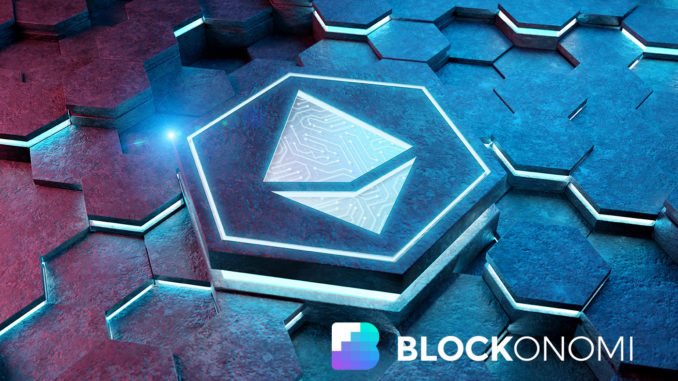
[ad_1]
The Dencun upgrade, one of the major upgrades in the Ethereum blockchain, went live on January 17, successfully integrating proto-danksharding (EIP-4844) to the Goerli tesnet. This testnet deployment will set the stage for the next upgrades on the Sepolia and Holesky testnets and the final launch on the Ethereum mainnet.
Despite encountering hurdles, the Dencun upgrade has successfully deployed on the Goerli testnet.
Paritosh Jayanthi, a DevOps engineer at Ethereum Foundation, confirmed the implementation in an X post: “Goerli forked and blobs are now enabled on the testnet!” He also monitored a live stream that showcased the upgrade.
As the implementation took place, it hit unexpected roadblocks, including a potential “chain-split” as there were issues with syncing between clients. Jayanthi noted that the Goerli fork failed to reach consensus and finality due to the low participation of Prysm validators, reportedly 80% being online at launch.
Ethereum Evolves
Terence, a maintainer of Prysm, an Ethereum consensus layer client, said that this issue could be attributed to the lack of software upgrades and a software bug.
To wit,
“The participation is low (~80%). Losing finality requires approximately 10% of validators to be offline. Being offline could be due to operators not upgrading a piece of software (and there are multiple)…or a software bug.”
However, Jayanthi said within a few hours that the issue was fixed and validators were back online, successfully reaching finality.
One thing to note is that the Goreli testnet will stop running within one to three months after the Dencun upgrade is successfully implemented. Following this decision, the Ethereum Foundation acknowledged that this would moderately affect the network’s stability.
Still, it would be a good opportunity for them to check the delays and security when many validators get reduced, similar to how they got rid of Ropsten and Rinkerby as Ethereum continuously achieved important progress.
Lower Transaction Costs Coming Soon?
Dencun is one of the major upgrades of the Ethereum network, following the Merge and Shanghai. The upgrade is expected to introduce a number of improvements to Ethereum, such as reducing the cost of storing transaction data and storage demand, improving the cross-chain design, and changing the blocks’ data structure, among others.
Dencun also aims to significantly reduce transaction costs for Optimism Rollups like Arbitrum or Optimism, attracting more users and enhancing Ethereum’s scalability.
Before its finalization on Goreli, the development team had initially implemented Dencun on multiple testnets to check for possible problems. If Dencun operates smoothly without major bugs in all these testnet environments, the activation on the mainnet will be planned and scheduled within Q1/2024.
With the successful implementation, all eyes are set on Ethereum’s price movement during the year’s first quarter. Layer 2 protocols will also be in the spotlight since the Dencun upgrade is expected to bring major benefits to these protocols.
At the press time, Ethereum is trading at around $2,500, down 2.35% in the last 24 hours. The decline followed a report of the Ethereum Foundation engaging in the sale of ETH through over-the-counter (OTC) exchanges. Notably, the team conducted a transfer of 100 ETH (equivalent to $253,000) to address 0xd77, receiving 253,000 DAI in return.
While ETH is a leading token, it will have to fight with other blockchains going forward. SOL, for example, is getting attention, and this could make it a real threat to ETH in the coming years.
Throughout 2023, the organization reportedly liquidated 2,262 ETH at an average price of $1,609 per ETH. These divestitures are often observed preceding market declines, drawing attention within the cryptocurrency community.
Despite these sales, the Ethereum Foundation maintains a substantial ETH portfolio. On-chain data indicates total ETH assets amounting to $886 million, comprising $806 million in ETH and $79.81 million in WETH. Additionally, they possess around $500,000 in stablecoins and $15,000 in Binance Coin (BNB).

[ad_2]
Source link





Be the first to comment